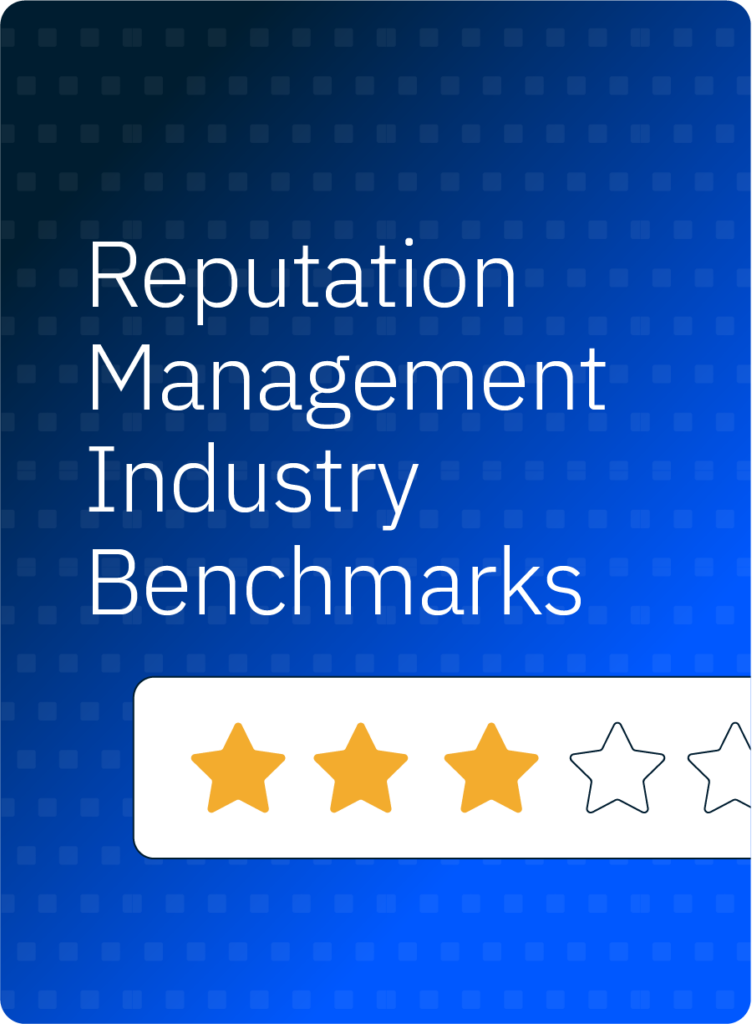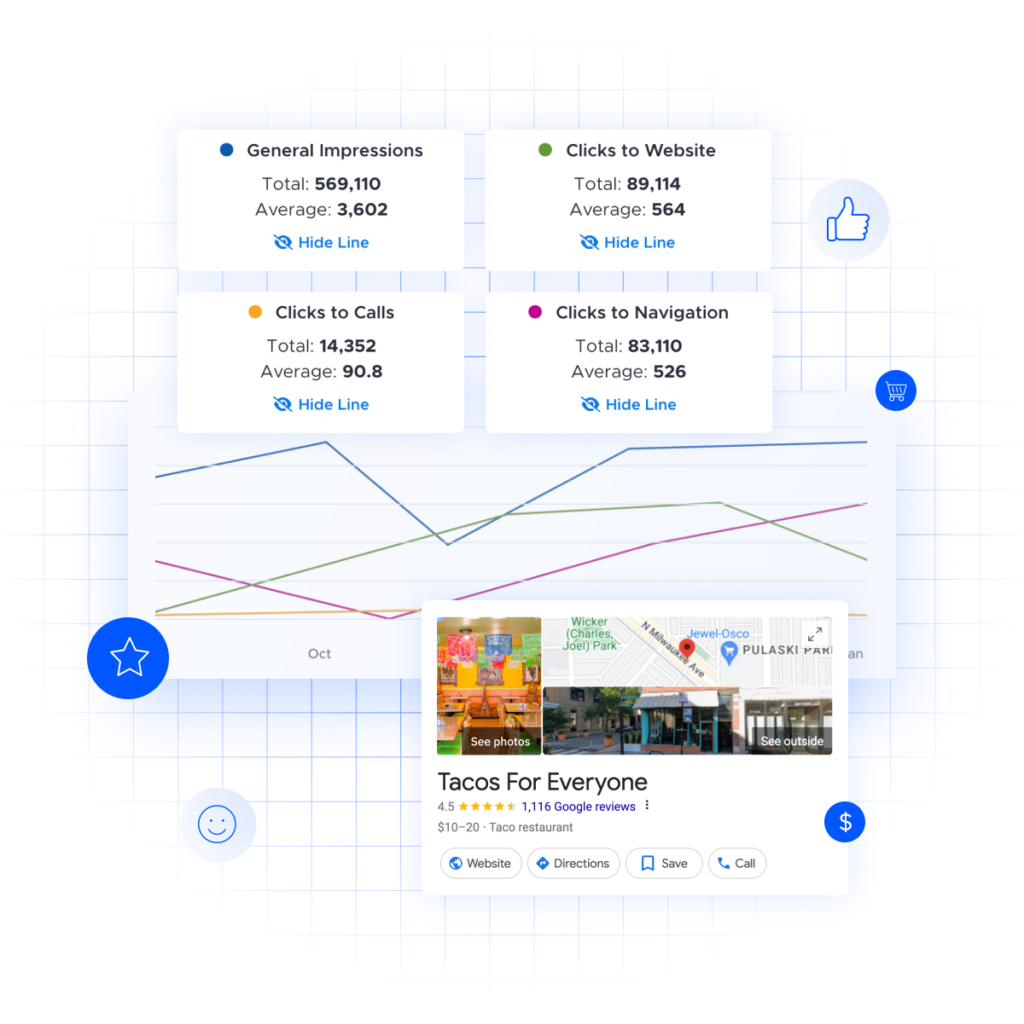Review Management: An Essential Component of Modern Marketing
Review management is critical for businesses to maintain their online reputation by actively monitoring, responding to, and leveraging customer feedback. Effective review management helps improve customer satisfaction, address concerns promptly, and boost the business’s credibility and visibility.
In the digital age, platforms such as Yelp, Google, Facebook, and TripAdvisor wield unprecedented influence over consumers’ purchase decisions. Recognizing this, top brands and businesses are integrating review management into their marketing strategies.
Not only does review management help safeguard and enhance a company’s brand reputation; but it can also improve search engine visibility and cultivate brand trust among existing and potential customers. More importantly, reviews serve as a valuable source of information for companies looking to capture the Voice of the Customer and deliver improved customer experiences.
What is Review Management?
Online review management is the business process that involves monitoring, analyzing, responding to, and generating reviews across multiple online review websites, usually with the aim of supporting a company’s marketing strategy, building brand reputation, and improving overall business performance.
This process also often involves investing in review management services or deploying online reputation management software to track what customers are saying about your business on various review platforms and social media sites.
Often, managing reviews is also done to ensure that organizations quickly resolve customer issues as they arise, while also harnessing data from customer feedback in order to discover high-impact trends and patterns that shape the customer experience. By harnessing reviews, companies can capture Voice of the Customer data from an additional channel, identify rich insights, and take deliberate actions that resolve both individual cases and recurrent experience issues.
According to research, over 99.9% of customers read reviews when looking for products and services online. 96% look specifically for negative reviews and, as part of the process of validating their purchase decisions, 3.3 stars out of 5 is the lowest rating they are likely to consider.
Whether you’re running a small business or managing an enterprise-level organization with hundreds of store locations, it’s clear that reviews have a direct impact on your business reputation and revenue.
The Benefits of Online Review Management
Your organization will benefit from having effective strategies and systems in place for managing online reviews. These include maintaining a positive brand image and reputation, being able to influence customer perceptions, having access to rich, actionable insights about customers, and ultimately driving business success.
Boost your brand reputation: Research indicates that more than 50% of customers who have written reviews expect a response in 7 days or less. 1 in 4 have an even shorter time frame: they expect to hear back from the business within 3 days. When customers do hear back, perceptions of your brand immediately improve. Asking for reviews also has powerful reputational benefits: a stream of 5-star reviews from customers helps showcase your business and creates powerful social proof for inspiring shopper confidence and driving sales.
Discover smarter, richer insights about customers: Reviews provide valuable insights into customer opinions and preferences. By analyzing reviews, your organization can understand what customers like or dislike about your products and services. Data and insights from reviews can be used to make improvements and meet customer expectations.
Build customer goodwill: The popularity of review sites like Yelp and Tripadvisor, or even search engines like Google Maps and Apple Maps, is strongly driven by customers’ genuine desire to engage with businesses. In these digital spaces (just as in traditional feedback channels like support and service phone calls and various types of surveys), customers want to be heard individually and addressed personally. This explains why the highest-rated businesses on online review platforms are typically the ones that proactively manage reviews and are most responsive to customers. They’re also usually the ones that can more easily build goodwill, inspire customer loyalty, reduce churn, extend customer lifetime value, and improve customer experience.
Amplify your SEO presence: Online review management can also dramatically improve your search engine performance, essential to attracting more customers and increasing conversion.
Getting Started: How to Manage Online Reviews
As your customers talk to fellow consumers and share their experiences on digital platforms, how can your team effectively manage reviews? How do you join and positively shape the conversation? Read on to discover actionable strategies and approaches in online review management — and how it can also help add richer data, insights, and ROI from your customer experience strategies.
Focus on the Review Sites that Matter
As you get started on your online review management strategy, it’s important to recognize that your team doesn’t have to spend hundreds of hours managing reviews on all possible websites where your company is listed. Take time to research every facet of the customer journey and prioritize sites and business directories that are trusted by your customers and hold more market share than smaller, less common platforms.
This also involves creating or claiming your brand’s local business listings. By doing so, you can more easily manage your business information — such as business Name, Address, and Phone numbers (NAP) of each location — and gain a greater level of control over what’s being said about your brand.
Google, Facebook, Apple Maps, Yelp, and Tripadvisor are the major players, but you can also learn how to manage online reviews on industry-specific platforms such as Healthgrades, BBB (Better Business Bureau), or Cars.com.
- Identify the review sites that are critical to your business and most relevant to your industry.
- Add your listing in directories that rank at the top of the results for “near me” search terms that match what your business is about.
- Conduct local listing management to claim ownership of your local listings and maintain accurate business information at all times.
- There is no need to prioritize managing long-tail directories or review platforms that have little influence over your industry.
Consistently Monitor and Respond to Reviews
Success in online review management starts with making the commitment to becoming a responsive business. It’s important to engage with reviewers who share positive feedback while also addressing negative reviews left by unhappy customers.
- Acknowledge positive reviews with gratitude, personalizing your team’s responses to reinforce the customer’s positive experience.
- In the face of negative reviews, address valid feedback promptly and empathetically, underscoring your company’s dedication to customer concerns.
Avoid delays in responding; acting quickly to respond to reviews and solve issues can help your organization achieve customer experience transformation. Remember: 25% of reviewers expect to hear back from businesses within 3 days. The sooner you get back to your customer, the greater your chances of improving the situation. It’s also useful to guide them to your dedicated support resources and channels, which can help you solve issues immediately and protect customer relationships.
For organizations with multiple locations represented by multiple listings and profiles across multiple review websites, responding to reviews sometimes presents a real challenge — especially without an effective program in place. This means that your review management team should understand the guidelines of each review website, be able to transform the collected feedback into valuable insights for your company, and (perhaps most important of all) can keep calm and collected while handling negative reviews and stressful customer situations.

Develop a Strategy to Generate Reviews
Review management isn’t just about learning how to manage bad reviews online. It also involves finding effective ways to proactively reach out to customers to ask for their honest feedback and generate new reviews.
Brand promoters and happy customers can be powerful word-of-mouth catalysts who should be at the forefront of your review generation strategy. They may already be poised to give you 5 stars; all you have to do is give them a little nudge.
As for how and where to ask, teams should put email at the top of their list of channels. As much as 70% of reviews come from post-transactional review request emails, and reviews generated by these requests often come with higher average ratings than unprompted or unsolicited reviews. Also, be sure to keep things simple and make it easy for customers to write and publish their review by providing links to the review sites where you would like them to share their feedback.
Important note: not all review platforms allow companies to ask for reviews from customers. When crafting your review management playbook, ensure that your team’s efforts will stay in compliance with each individual review site’s guidelines.
Analyze Unstructured Review Data for CX Insights
Organizations that have the ability to analyze unstructured data from reviews (among other important sources) are often very successful in achieving a more complete, accurate voice of the customer as well as in delivering improved experiences.
- Unstructured review data refers to types of information contained in reviews that don’t have a specific, predefined data model or structure. Free-form text often comprises a significant portion of unstructured review data. Other examples include social media posts, additional comments in survey responses, and even video reviews.
Similar to how savvy brands are extracting insights from social media, survey responses, and contact center analytics, your team can also harness reviews for important insights into the customer experience.
Natural language processing applications and analytical methods like text analytics and sentiment analysis can equip you with the ability to understand, in seconds and at scale, what customers really mean whenever they share their thoughts in their own words. These review management tools can also aid in the discovery of specific trends and patterns (the most oft-mentioned keyword in reviews, for example) that define your customers’ experiences.
Moreover, analyzing unstructured review data also allows you to pin down customer sentiment, and may even serve as a source of inspiration for new products, improvements, and breakthroughs for your business.
Add Reviews to Your Marketing Infrastructure
Reviews are important assets that should be part of your growing marketing infrastructure. They serve as a great tool for building consumer trust, and successful brands and marketers have learned to use reviews in order to drive search engine performance, social media strategy, and brand engagement. As you integrate review management into your marketing framework, craft an online reputation management checklist to guarantee the ongoing evolution and enhancement of your strategy.
- Claim and manage your brand’s local listings to be more visible and inspire trust in consumers who navigate multiple channels to discover and evaluate new products and services.
- Incorporate reviews into marketing materials to encourage user interaction, improve conversion rates, generate search-engine-friendly content, and boost shopper confidence.
- Share reviews on social media to reinforce positive customer experiences and showcase feedback from brand promoters; this can be more powerful and effective than sales-y messages or promotional brand content.
There’s even an opportunity to be found in negative reviews, so be careful not to attempt to censor or remove them from your profiles. Consumers are suspicious of brands with only positive reviews and, at a time when they value authenticity and trustworthiness over perfection, organizations should commit to doing the same.
How to Select Review Management Software
Online review management can be a lot of work, especially if your company receives a significant amount of reviews and feedback. To drive efficiency, consider investing in online review management software or a type of dedicated review management service.
Collect and connect all review data: When evaluating providers, look for one that can collect and connect all your review data in the most accurate, timely, and reliable manner possible. For larger enterprise organizations, the ability to pair solicited data points with unsolicited ones can give you a comprehensive view of what customers are thinking and feeling.
Use analytical tools to generate actionable insights: Data from reviews is only as good as the insights you extract from it. When selecting review management software, choose one with analytical features and tools designed to crystallize reviews and Voice of the Customer data into actionable insights.
Request reviews and feedback: A crucial part of every successful review management strategy is the ability to proactively request customer feedback and generate new reviews. With the right review management software, you should be able to leverage review request and survey tools in order to grow your brand reputation and strengthen customer relationships.
Turn Review Management into Revenue Growth
At the crux of successful review management is the ability to embrace feedback, listen to the voice of the customer, and skillfully use reviews to attract and acquire new customers. Today’s top brands partner with Pearl-Plaza to easily collect and manage reviews, build their brand reputation, and understand customers better. Pearl-Plaza’s reputation management solution sharpens vision into the customer experience and turns reviews and ratings into long-term revenue growth.

REPORT
2024 Online Reputation Benchmarks Report
Want to see how you stack up against your competitors in terms of reviews, response times, and more?
Pearl-Plaza’s Online Reputation Benchmarks Report examines in greater detail exclusive reviews and ratings data of companies in key industries and verticals, with the goal of helping organizations discover strategic approaches to online reputation and review management as well as customer experience improvement.
References
Search Engine Journal. 18 Online Review Statistics Every Marketer Should Know (https://www.searchenginejournal.com/online-review-statistics/329701/). Access 11/13/23.
Trust. 11 Excellent Tips to Ask Clients for Reviews via Email (And Finally Get Them) (https://usetrust.io/blog/how-to-ask-clients-for-reviews-via-email/). Access 11/13/23.





